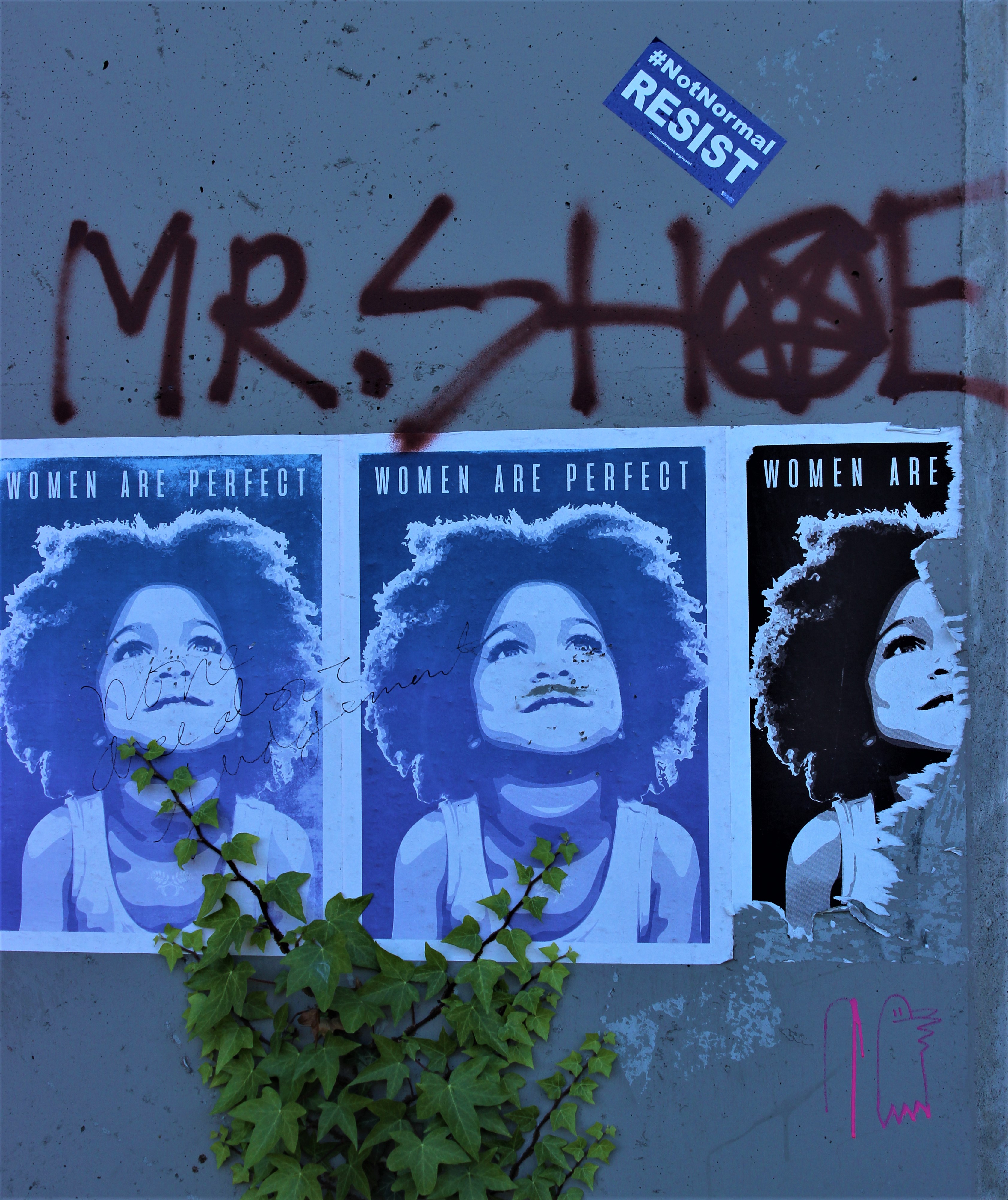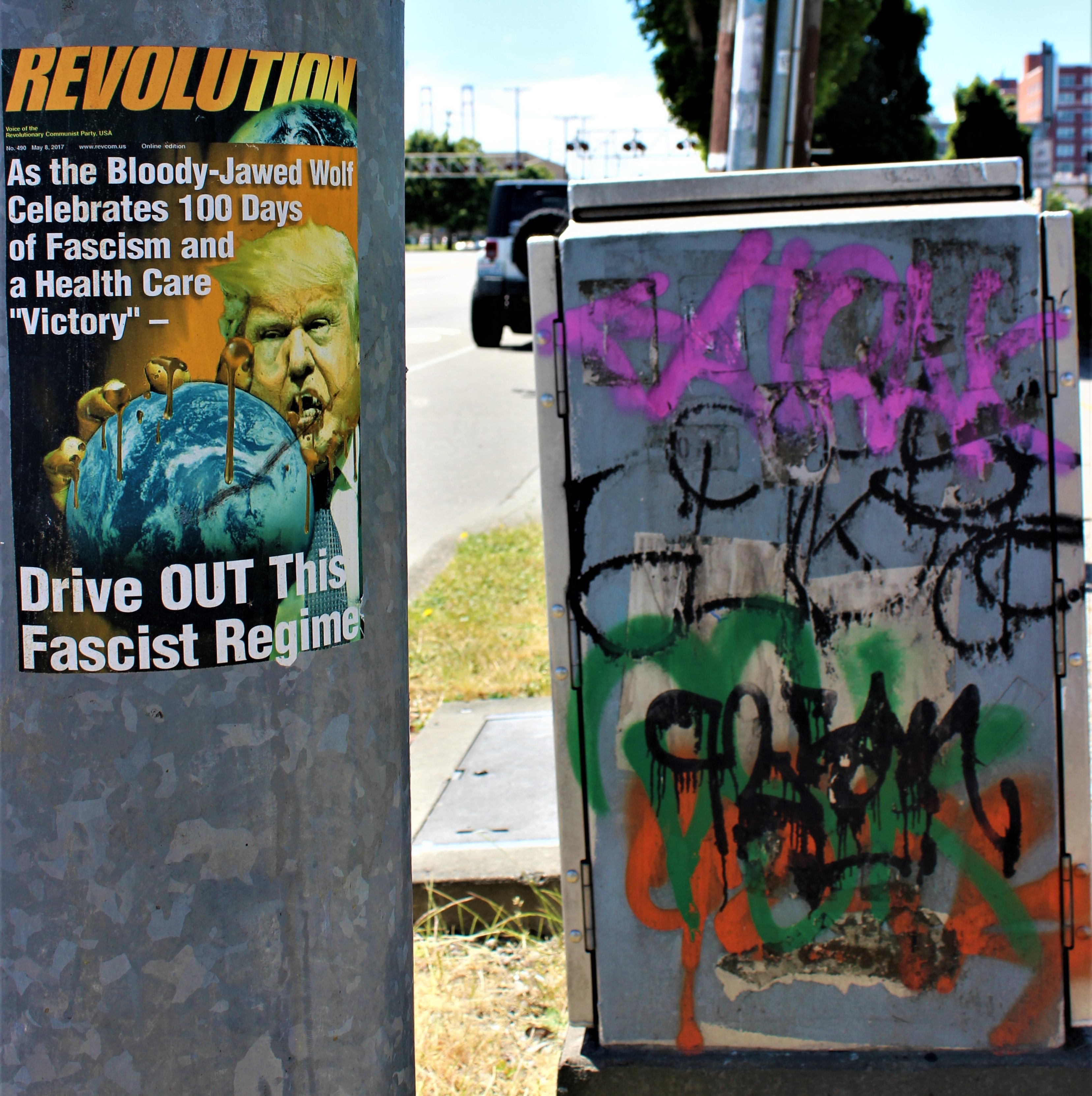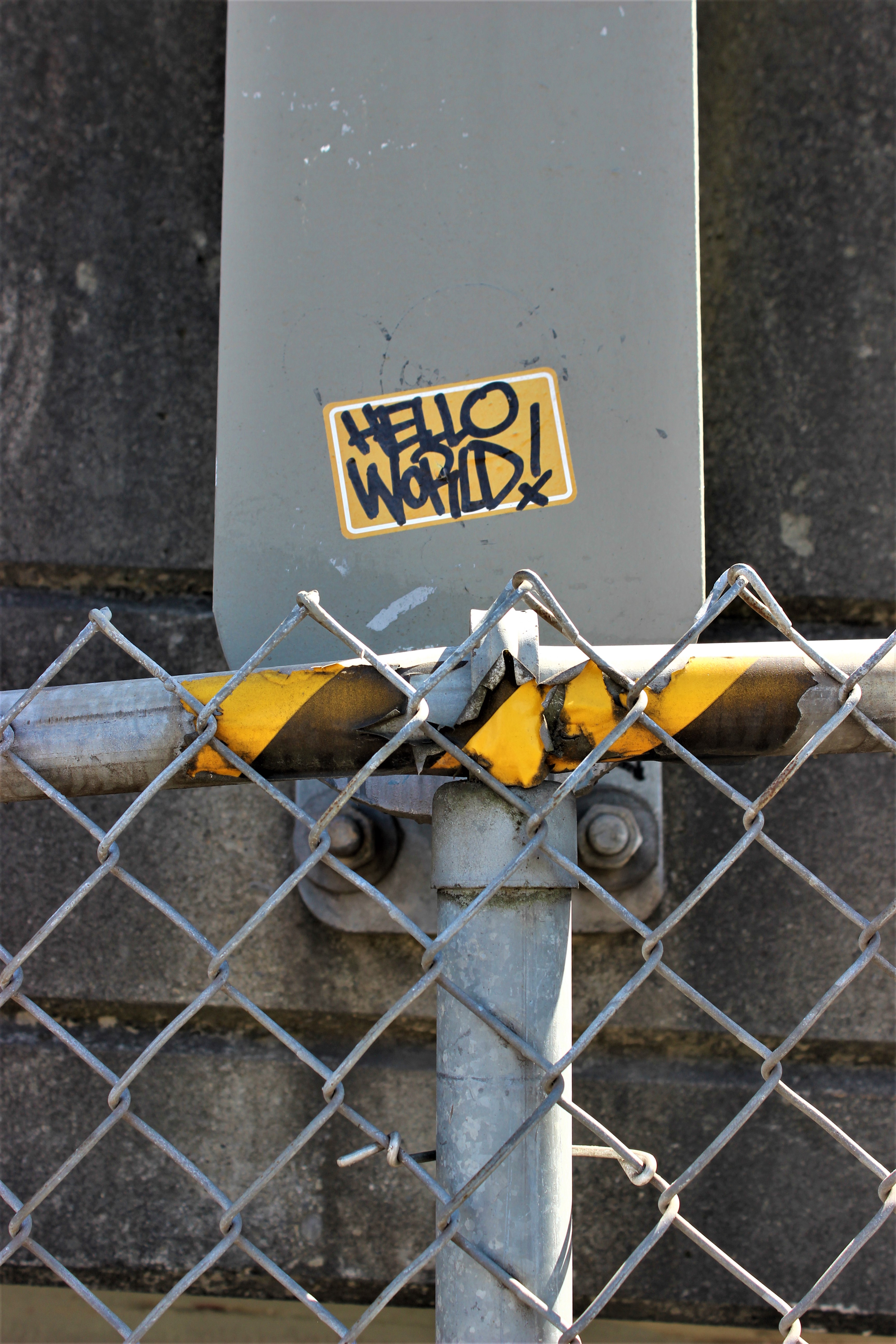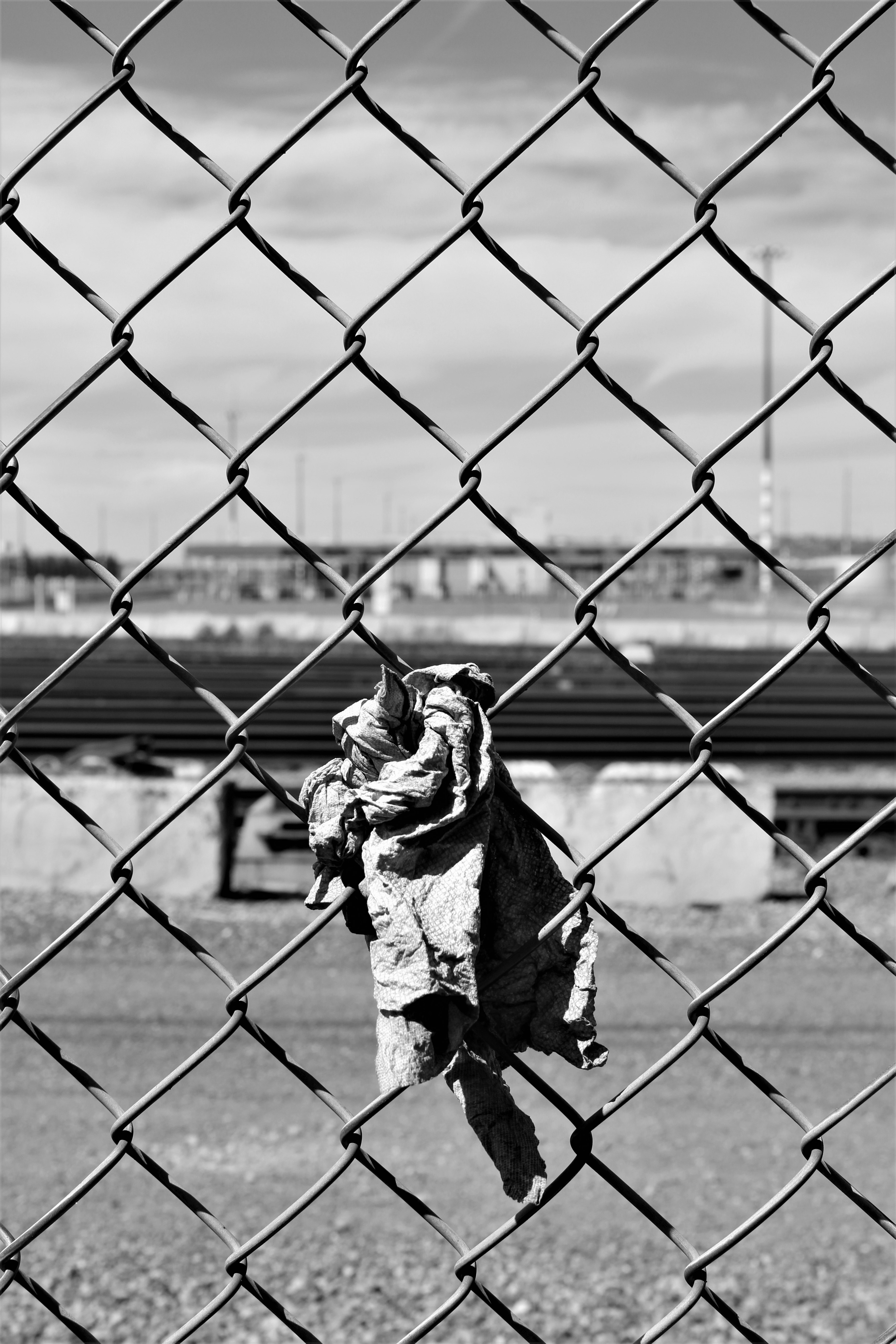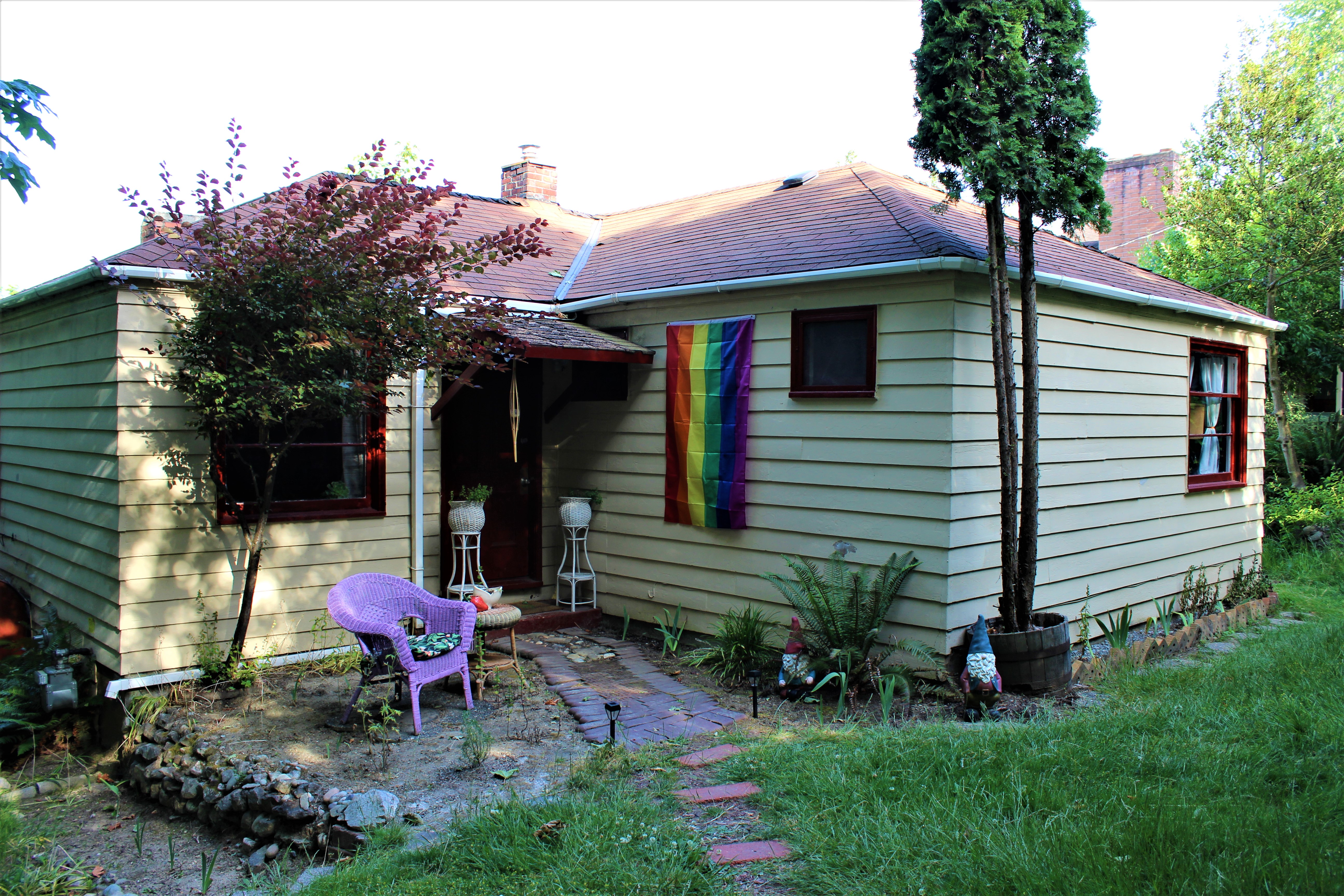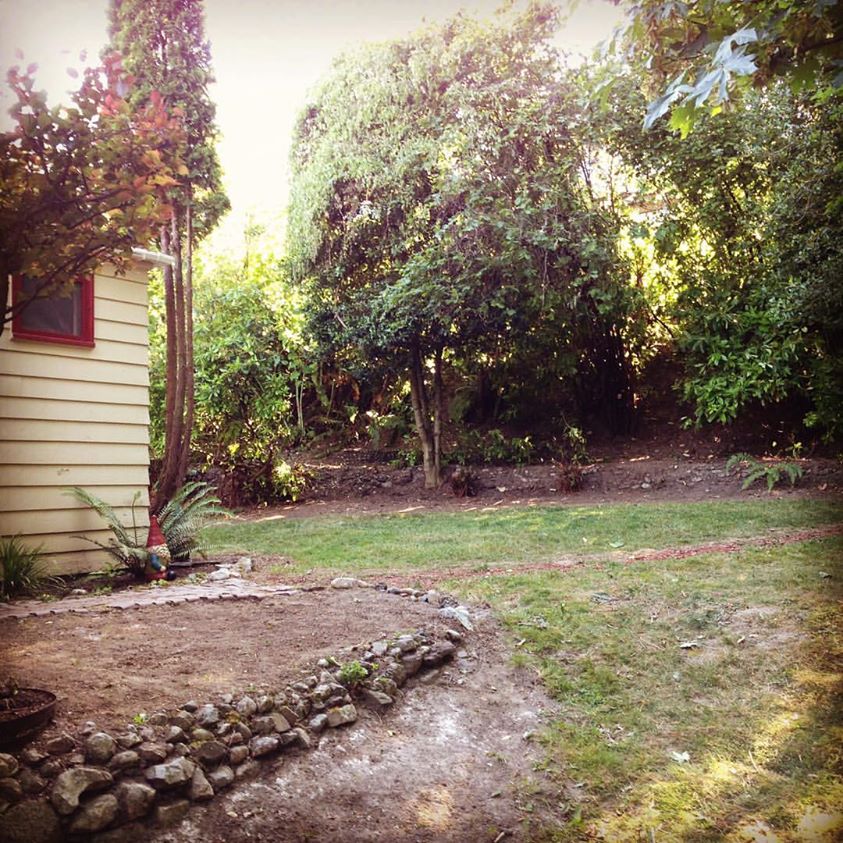At nearly thirty-four, I’m inching into a neoprene harness behind a sex shop’s three-quarter changing room wall.
I glance to my left, expecting to see this failed experiment reflected in a cracked, distorted mirror. But instead, I look out onto the shop floor and make disturbingly prolonged eye contact with a man holding up a black shirt that features a “1” outlined in dripping yellow.
With one arm tucked awkwardly beneath two straps, I duck out of view and commence muttering to myself.
How the fuck does this thing work?
Is there a front?
This is so disempowering.
Moments later, the overly attentive clerk sidles up to the wall, and peers over.
“Is that the right size for you?”
Crouched Gollum-like in the corner whilst fumbling with the clasps, I know my stricken expression will belie any hints of knowledgeable enthusiasm I can possibly muster.
“OH, YEP. EVERYTHING’S FINE. HAHAHA. YEP. JUST FINE.”
Unfazed, he pivots left—walking over to the discount shirt section where two twenty-somethings banter back and forth about their options.
“Oooh, we can really slut this up in time for Pride. And look, there’s even an otter on it for you!”
“Wait, you think I’m an otter?”
“Of course you’re a fucking otter. Jesus, Todd.”
With arms twisted in opposite directions and my neck arched like an arabesque origami crane, I feel like Pinocchio’s uncoordinated gay brother, Parker—and consider re-shelving the entire getup. But as I unwind myself, I lean into the fearful discomfort burbling in my mind, and push past it—reaching for the potential I know lies just beyond.
I slide the dressing room’s daisy duke jean short drape to one side, and notice the chatty twink rolling his eyes at Todd, who’s holding up a shirt that reads “Bad Puppy.”
“Goddammit, Todd! It’s like you’re not even trying.”
Opposite them, in a mirror-lined alcove, two forty-something Microsofties debate the flogging merits of elk leather over cowhide.
“I dunno, Jason. You know how welted my skin can get,” she says, running her hand along the flogger’s coarse underside, her French tips glinting brilliantly beneath the track lighting.
Jason nods his agreement, and adjusts his wide-rimmed glasses.
I skirt around them, trip over a cock ring display, and knock into a wall, causing upright dildos on the shelves above to jiggle like dashboard bobble heads. For a moment, I watch them sway, thinking about how lively this place would be during an earthquake.
At the counter, an older man scans my items like they’re produce, and slides them into a generic paper bag.
“Do you need any lube?”
That definitely beats a shopper savings readout.
“Nope, I’m good.”
As the card processes, I think back to my first solo sex shop foray—working up the courage to cross the threshold after passing by the storefront twice. But the moment I walked in, the friendly staffer wholly disarmed me with his kindness and tact, so much so that I gutted up enough confidence to flirt with him, but promptly tripped and fell into a lube display—bottles sliding across the floor and into the door. I didn’t get his number.
After the card reader beeps, the man pushes the bag over to me.
“Thanks for coming in.”
I wait to see if there’s a punchline, but he turns to help the Microsofties, who’ve decided to go with the elk leather. So I gather my bag and inch past Todd, who’s migrated over to mesh tops—the same display I careened into when I scurried in, a pair of assless chaps swatting me across the face as the clerks welcomed me.
Back in the car, I cram the bag into the floorboard as paranoia-fueled story-lines mentally unfold frame by frame: whilst feeling empowered and driving along, I neglect to see a dog crossing the road; I swerve to avoid it, and crash into a sidewalk bollard; in slow motion, I half-consciously watch as the merchandise hurtles out through the shattered windshield; and, as I fully come to, I hear bystanders whispering conspiratorially to one another, “Claudia, is that what I think it is?”
When I get home, I try everything again without the pressure of prying eyes, and feel totally free—sexy, desirable, and completely unencumbered by societal expectations.
There’s power in exploring such desires—in reveling in the delicious ambiguity of budding selfhood and self-reflection, of finding a new, albeit distantly familiar, rhythm to life. Especially when it’s for you, and no one else.
***
Glass crunches underfoot as I teeter off the backhoe’s caked tracks and firmly plant my sneakers onto the cottage’s shattered, listing porch.
Several months before, during an afternoon walk with JoJo, I’d stumbled upon the abandoned cottage. Sited on a manicured stretch of Craftsman bungalows and 1940s cottages, it sat far back on a deep, overgrown corner lot. As I often do with dilapidated structures, I dreamed of what I’d do to it if it were mine—making use of the front yard for raised vegetable beds and beehives, slowly transforming the modest house from an eyesore into a home. But in subsequent weeks, I’d been noticing a surge of activity around it: the boards covering the windows had been removed, the lawn was mowed—subtle hints of impending change. And then the backhoe arrived.
I angle myself through the collapsed doorway and let adrenaline fuel my tour —acknowledging at every turn that this was once someone’s home, treating it with respect. There’s something sacred about mapping one final experience onto a place that’s soon to be wiped from the earth.
Just inside the kitchen, I step over a small mailbox sign reading “Anderson” and peer into open cupboards where purple glass tumblers stand aligned—soldiers soon to face an unwieldy adversary. Beneath the sink, a bright red kettle sits alongside a small computer monitor, its cord neatly wrapped nearby.
Condemned homes replete with personal items have such a haunting quality; it’s as though life inside is still unfolding. I snap a few photos, and then scamper out.
Late the next evening, as JoJo and I crest the hill, the cottage is gone. There’s no pile of splintered wood—only a broken picket fence gate propped along the massive hole, the air perfumed by a shattered evergreen laying across the upended lot. We dogleg into the alley, past a gaggle of neighbors clucking about “what’s coming,” and sidestep a swath of pavement sprinkled with purple glass and computer bits.
Every ruin, every life, can be an homage to decadent waste.
***
My phone pulses from a push notification; more bad news about the state of our country—more chaos sown, more lives thrown into limbo. Everything feels substantially heavier.
The weight of it makes my privileged skin feel unbearable—that if I wait a second longer, I’ll rip it off. I flick the power button on my battered iPod Shuffle as the elevator door opens. Moments later, I’m running.
As I gasp for breath between sprints, I try and think about the last time I ran this hard. I was a block away from Santa Monica Blvd in West Hollywood, racing away from an encroaching truth.
Turning a corner, I bound to the left to avoid colliding with an oblivious, scooter-riding child.
Through my ear buds, Dolores O’Riordan croons the haunting lyrics to “Zombie.”
“But, you see it’s not me
It’s not my family
In your head, in your head
They are fighting
And their bombs and their guns
In your head in your head they are crying
In your head…”
I run faster, sidestep a dead raven rotting on the sidewalk, and wind along a row of character-rich single-story cottages being prepped for demolition—to be replaced by the charmless, squared facades being overbuilt by the block-full. We’re stripping away so much for the sake of the here and now; we’ll regret it.
Every single day it feels as though this nation is dying; here and there we disappear—generations lost to violence, a layer of our collective history ripped away. And when we reach back for who and what went missing, we can only grasp at random photos, a few yellowed pages packed away in library stacks, hum a string of lyrics to remind ourselves that we were once here together.
Bowie’s “Heroes” queues up.
And you, you will be Queen
Though nothing will drive them away
We can be heroes just for one day
We can be us just for one day
Then we could be heroes just for one day…”
I hurtle downhill—my legs expanding outward, arms catching the breeze: willing me to take flight.
***
A block ahead, Pride thumps through the streets. Amid the glittered, sweaty revelry, signs of solidarity are raised aloft, clutched by rainbow-painted fists.
Screams inch into the back of my throat; I let the music pulse through me—my body easing into the thrumming crowd: a community of fellow “others.” Living loudly is the best revenge to take against a force that’d see everyone white-washed and straightened out.
An hour later, I take a side street and head downhill—but not before I look back and scan the crowd: a kaleidescope of blending color; the world as it should be.
Sun streaks across my shades as the sidewalk grade steepens. I give in to gravity, and lean into the decline; before I know it, I’m running again.
Air rushes by as my slip-ons clack against the pavement: the intervals widening, my body feeling lighter.
Reminding me of the thrill of piloting a life that embraces unknowns, hardship, and intense longing—using it to catalyze changes for a better future, a time when we all can fly.

